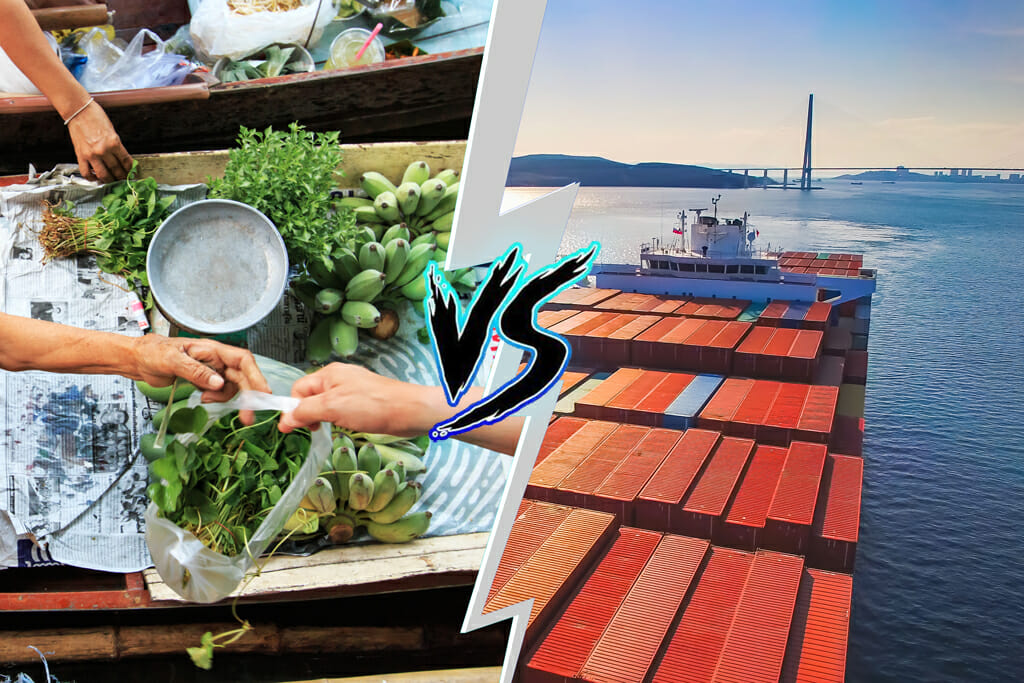You’ve been successful in your domestic market, and you want to take that success further afield.
How do you go about positioning yourself in the global market? What are the differences between global and local marketing? No need to worry, we are here to answer your questions!
What is global marketing?
When we talk about ‘going global’, we mean creating an international marketing strategy for your business. An integral part of this is going to be translating your content. By taking your website global, you’ll extend your reach across the globe, operating in multiple markets at once.
Your initial approach may be to try and appeal to as many consumers as possible. While this can work in some cases, much of your content will need more specificity – that’s where localization comes in!
What is Localization?
We talk about localization a lot, and all it means is making your content well-suited to a target audience in any particular area. For instance, we’ve outlined some things to consider when translating for German or Spanish markets and some of the differences between European and Latin American Spanish.
Tailoring your content to a specific audience will gain you credibility. Accurate translation is necessary, of course, but so is cultural sensitivity and being on-trend with your visuals too.
How do I market internationally?
If your existing marketing strategy is working well, there’s no reason not to adapt it for international purposes. Pick out what carries your brand message best, then make it suitable for new markets via localization.
Your online presence says a lot about you. That’s why we believe that website localization is the key to going global. In particular, localizing your eCommerce may maximize your sales by making the shopping experience more personal to customers. Essentially, you want people to feel like they are buying from one of their local stores. To get started, look at our tips on what to focus on before e-commerce localization.
The most important thing before launching any international marketing is to do your research! There’s no point making your eCommerce viable overseas only to discover that shipping costs or regulations will present a problem. It may seem time-consuming, but it will be worth it in the long run.
How do I localize my content?
How you choose to go about localizing will depend on both the type of content and the target audience. It may be that you already have the necessary expertise in-house; alternatively, you may decide to outsource.
If you conclude that outsourcing is the best option for you, there are plenty of routes to go down. For smaller amounts of content that require a personal touch, you might want to hire a freelance translator. For higher volumes or neutral content, machine translation might be a good bet.
Bonus tip: remember, an in-country reviewer can help you to refine your content and make sure it will read well in the target language!
How can I make this cost-effective?
Once you’ve decided what content you want to localize and who for, you can go about creating a translation budget.
Our top tips for saving money are:
- Create content that is easy to localize. Of course, this is only possible if you can think ‘global’ from the get-go. It’s also worth considering if you happen to be redesigning your website.
- Be selective with what you localize. Is it necessary to localize every page on your website? Which ones generate the most traffic or are most relevant to international users?
- Don’t be afraid of machine translation! Nothing beats the accuracy of human translation, but it might not be necessary at every stage. Either way, finding the best professional translator or a Translation Management System for the job will save you both time and money.
Make sure that cutting costs doesn’t lead to cutting corners. You don’t want to alienate potential customers by falling into cultural or linguistic pitfalls.
At TextUnited, we use translation memory and terminology management to save you money and make your translations more accurate. You can find out more about this here!
If you want to learn how to expand to other markets, reach out to us. We will provide you with guidelines and support, and we can then decide together which approach you should take in your global marketing efforts.

